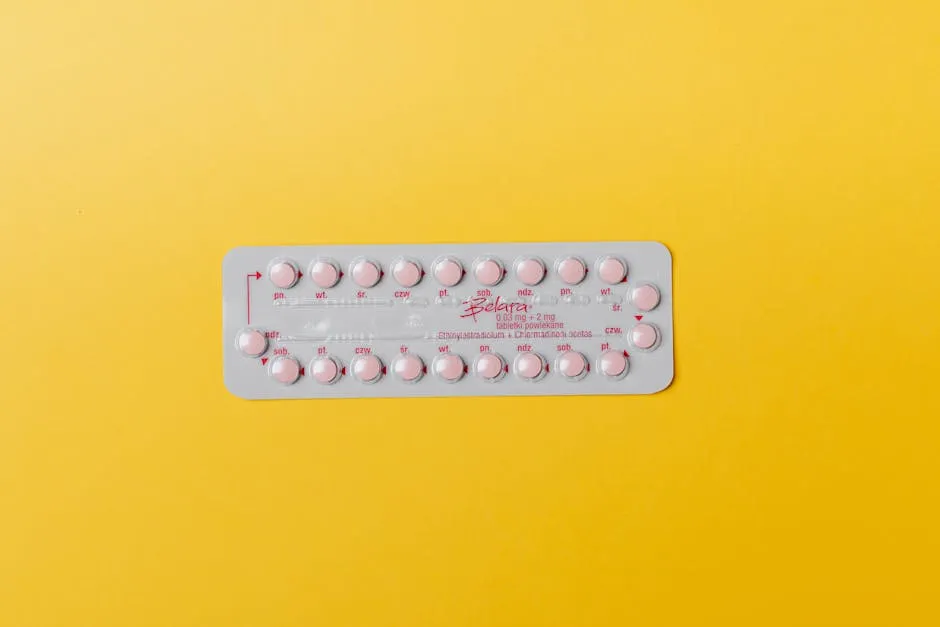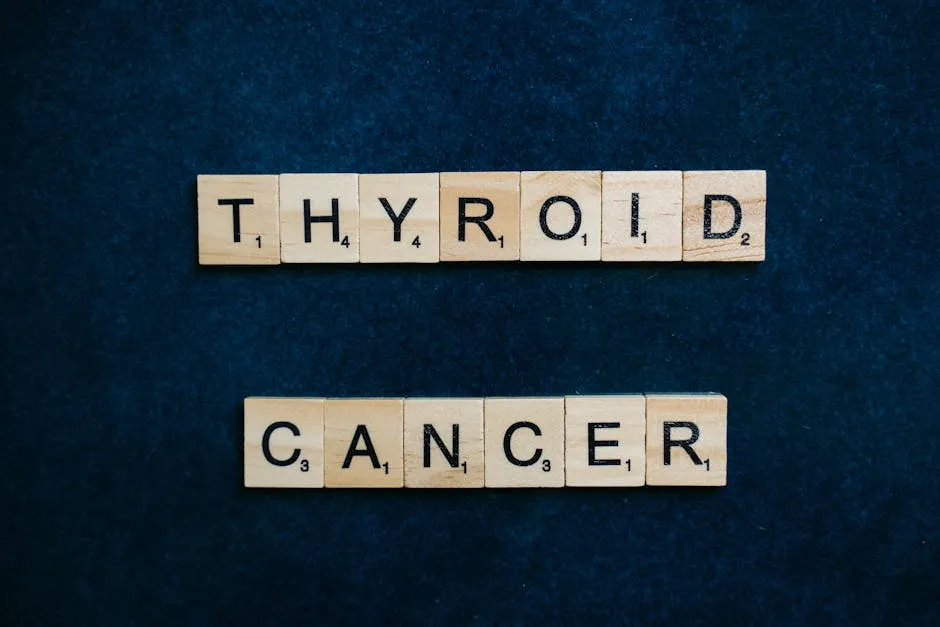
Why Is My Period Late? Understanding the Causes and What to Do
Introduction
Late periods can feel like an unwelcome surprise, leaving many women wondering if they should be worried or reaching for a pregnancy test. But before you panic and assume the worst, let’s dive into the myriad reasons why your period might be running fashionably late. From stress to hormonal imbalances, there’s more to the story than just pregnancy. So grab a cup of tea and let’s unravel this mystery together!

Summary
This article explores the various reasons behind a late period, emphasizing that while pregnancy is a common concern, it is not the only factor at play. We will discuss the normal range for menstrual cycles, how lifestyle factors like stress and weight can influence timing, and the role of medical conditions such as PCOS and thyroid disorders. Understanding these aspects can help you determine when it’s necessary to consult a healthcare professional. We’ll also provide tips on managing stress and lifestyle changes that could help regulate your menstrual cycle. By the end, you’ll have a comprehensive understanding of why your period might be late and what steps to take next.

Common Reasons for a Late Period
Ah, the late period dilemma. It’s like waiting for a friend who said they’d be there in five minutes but has now taken an extended coffee break. We’ve all been there, but what could be causing this delay? Let’s break down some of the most common culprits.
Pregnancy
First up, the obvious one: pregnancy. When pregnancy occurs, the body shifts gears. Instead of shedding the uterine lining, it thickens it to support a growing fetus. If your period is late and there’s a chance you could be pregnant, it’s time to fish out that pregnancy test. The best time to take it? Wait until at least a week after your expected period for the most reliable results. Trust me, those tests are more accurate when the hormone levels have had a chance to build up.

Stress
Next on our list is stress, that sneaky saboteur of menstrual cycles. When you’re stressed, your hypothalamus (the brain’s command center for hormones) can go a bit haywire. This disruption can throw your menstrual cycle out of whack. Whether it’s work deadlines, family drama, or just the everyday chaos of life, stress can lead to late periods. Finding ways to relax—like yoga, meditation, or even indulging in a Netflix binge—can help restore some balance. Speaking of balance, why not enhance your relaxation with an essential oil diffuser? It can fill your space with calming scents, helping you unwind after a long day.

Understanding the impact of stress on our lives is crucial. For more insights, check out why do we feel stressed in modern society.
Weight Changes
Unexpected weight changes can also cause your period to play hide-and-seek. Both ends of the spectrum—being underweight or overweight—can mess with your hormones. For instance, if you lose a significant amount of weight quickly, your body might not have enough energy reserves to support a menstrual cycle. On the flip side, obesity can lead to increased estrogen levels, resulting in missed periods. In fact, statistics show that eating disorders affect up to 10% of women, and they are well-known for causing irregular cycles. So, whether you’re shedding pounds or gaining them, your body might just hit the pause button on your period.

Polycystic Ovary Syndrome (PCOS)
Ah, PCOS, the condition that seems to be everywhere and affects roughly 1 in 10 women. It’s characterized by hormonal imbalances that can lead to irregular or absent periods. With PCOS, the ovaries may not release eggs regularly, causing the menstrual cycle to go off the rails. Symptoms can also include weight gain, acne, and excessive hair growth. If you suspect you might have PCOS, it’s worth discussing with your healthcare provider. You can also educate yourself with a great read like the PCOS Awareness Book to better understand your body.

Hormonal Birth Control
If you’ve recently started or stopped hormonal birth control, your period might just decide to be fashionably late. Birth control pills, patches, and other hormonal methods can significantly alter your cycle. After discontinuation, it might take a few months for your body to recalibrate and return to its usual rhythm. Don’t panic! This is a common occurrence for many women.

Thyroid Disorders
Thyroid issues are like the hidden ninjas of menstrual irregularities. Conditions like hyperthyroidism (an overactive thyroid) or hypothyroidism (an underactive thyroid) can create chaos in your menstrual cycle. The thyroid regulates metabolism and hormone levels, so when it’s out of balance, your period can be too. If you suspect a thyroid issue, a simple blood test can provide clarity and help you find the right treatment.

Chronic Diseases
Chronic conditions like diabetes or celiac disease can interfere with your menstrual cycle as well. For instance, uncontrolled diabetes can lead to hormonal changes that cause irregular periods. Similarly, celiac disease can impact nutrient absorption, which is crucial for maintaining a regular cycle. If you have any chronic health issues, keep them on your radar when discussing menstrual health with your doctor.

Perimenopause and Premature Menopause
Finally, let’s talk about perimenopause, the phase that precedes menopause and can start as early as your 40s. During this time, hormonal fluctuations can lead to irregular periods. If you notice more than just a few missed periods and you’re approaching your 40s, it might be time to have a chat with your healthcare provider. Premature menopause, which occurs before age 40, can also lead to similar symptoms. It’s important to be aware of these changes as they may require different management strategies.

Lifestyle Factors Affecting Your Cycle
Exercise
Exercise is essential for health, but too much can backfire. Ever heard of the term “athlete’s triad”? It’s a condition seen in athletes characterized by disordered eating, amenorrhea (missed periods), and osteoporosis. When you push your body beyond its limits, it can lead to hormonal imbalances. Excessive exercise can signal your body to conserve energy, causing a halt in ovulation. So, if you’re hitting the gym like it’s a marathon but your period is more like a no-show, it might be time to ease up on those workouts. Striking a balance is key. Aim for moderate exercise and listen to your body. After all, you don’t want to trade in your period for a six-pack! And while you’re at it, why not invest in some yoga mats to help you find that zen?

Diet
Food is fuel, and your body needs the right kind to keep everything running smoothly. Extreme diets can lead to nutritional deficiencies, which might just send your period packing. Low-calorie diets, for instance, can cause your body to enter a state of stress. When your body thinks it’s in a famine, it conserves resources by skipping ovulation. Did you know that women with eating disorders often experience missed periods? It’s a cry for help from your body, reminding you to nourish it. So, munch on those leafy greens, whole grains, and healthy fats, and let your period know it’s welcome to stick around! To help with meal planning, a healthy recipe cookbook can provide you with delicious ideas that keep your body happy.

Sleep Patterns
Ah, sleep—the magical elixir we all need. But if your sleep schedule resembles a chaotic roller coaster, your menstrual cycle could take a hit. Irregular sleep can affect your hormone levels, particularly cortisol and melatonin, which play a role in regulating the menstrual cycle. When you’re sleep-deprived or have inconsistent sleep patterns, your body can misinterpret the signals, leading to late or missed periods. Aim for a regular sleep routine and catch those Zs. You’ll feel better, and who knows? Your period might just take the hint and return on time! If you struggle to wind down, a sleep mask can help create a peaceful environment for rest.

Travel and Time Zone Changes
Traveling can be thrilling, but it can also throw a wrench in your menstrual cycle. Jet lag, time zone changes, and the stress of packing can disrupt your body’s internal clock. Ever been on a long flight and felt like a zombie? That disorientation can confuse your hormonal balance, resulting in late periods. Stress from travel—like navigating an airport or dealing with flight delays—can also impact your cycle. So, if you’re planning a getaway, consider your cycle and pack some relaxation techniques along with your sunscreen. Your body will thank you, and your period might just agree to stick to its schedule while you’re off exploring!

When to See a Doctor
Signs That Require Medical Attention
Let’s face it: sometimes, our bodies throw us curveballs. If your period is MIA and you aren’t pregnant, it’s time to pay attention. Here are some signs that warrant a visit to your healthcare provider: If you’ve missed your period three times in a row, that’s a red flag. Experiencing excessive pain during your cycle? Don’t ignore it! Other symptoms like unexplained weight changes, fatigue, or facial hair growth should raise eyebrows too. Keep an eye out for these signs, and if they apply to you, consider making an appointment. Better safe than sorry!

What to Expect During a Consultation
So, what happens during a doctor’s visit for missed periods? Expect a thorough chat first. Your doctor will likely ask about your medical history, lifestyle habits, and any symptoms you’re experiencing. Diagnostic tests may follow, like blood tests to check hormone levels or an ultrasound to examine your reproductive organs. It sounds intimidating, but remember, this is all about getting to the bottom of your cycle’s drama. It’s an important step toward restoring your menstrual health, so don’t hesitate to reach out!
Tips for Managing a Late Period
A late period can feel like an unexpected pop quiz—stressful and a little bewildering. But don’t worry! There are practical steps you can take to help manage your menstrual cycle and bring it back on track.
Stress Management Techniques
Stress is a notorious culprit behind late periods. It can throw your hormones into a tizzy, leaving your cycle confused. To combat this, consider incorporating mindfulness practices into your daily routine. Simple techniques like deep breathing, meditation, or yoga can significantly reduce stress levels. Even a brisk walk outside or indulging in a good book can work wonders. For added relaxation, try a meditation cushion to help you get comfortable during your sessions.

Healthy Weight Management
Your weight can play a significant role in menstrual health. Both sudden weight loss and weight gain can lead to irregular periods. To maintain a healthy weight, focus on a balanced diet rich in whole foods like fruits, vegetables, whole grains, and lean proteins. This will provide your body with the nutrients it needs to function optimally. Don’t forget to support your weight management journey with vitamins for women’s health to fill any gaps.
Regular Check-ups
Staying proactive about your reproductive health is essential. Regular gynecological exams can help identify any underlying issues contributing to a late period. Discuss any irregularities with your healthcare provider, who can offer personalized advice and treatment options. It’s also a great opportunity to ask questions about contraception, menstrual health, or any concerns you may have. If you ever find yourself in need of quick care, a first aid kit is a smart item to have on hand!
FAQs
What is considered a late period?
A late period is usually defined as being more than seven days past your expected date. Most menstrual cycles range from 21 to 40 days, with 28 days being the average. If your cycle is reliable and suddenly takes a detour, it’s time to take notice. Remember, a late period doesn’t always mean a cause for alarm, but it can signal something is off.
Can stress really impact my menstrual cycle?
Absolutely! Stress is like that one friend who always shows up uninvited. It can wreak havoc on your hormones, particularly the hypothalamus, which is responsible for regulating your menstrual cycle. Chronic stress can lead to missed or irregular periods. So, if you’ve been feeling like you’re juggling flaming swords, it might be time to take a breather. Finding ways to relax—be it through yoga, meditation, or binge-watching your favorite show—can help get your cycle back on track.
How long can a period be late without being pregnant?
While a delay of a few days is common, a period is considered late if it’s more than seven days overdue. If your cycle is typically regular, anything beyond that may warrant attention. If your period is late and you’re not pregnant, it could be due to various reasons, including stress, weight fluctuations, or hormonal imbalances. If it extends to two weeks or more, consider consulting your healthcare provider for insight.
What should I do if my period is more than a week late?
First things first—take a deep breath! If you’re more than a week late, start by taking a pregnancy test, just to rule that out. If the test is negative, and your period still hasn’t shown up, it’s a good idea to check in with your healthcare provider. They can help identify any underlying issues and provide guidance. Keeping a record of your cycles can also be helpful for your doctor. And while you’re at it, consider tracking your health with a fitness tracker to monitor your activity and health metrics!
Are there home remedies to help regulate my cycle?
While there isn’t a magic potion to summon your period, some home remedies may help regulate your cycle. Stress management techniques like yoga and meditation can work wonders. Maintaining a balanced diet and regular exercise is crucial, too. Some suggest herbal remedies like ginger or turmeric, but it’s always best to consult with a healthcare provider before trying new treatments. Consider adding some herbal tea assortments to your routine, as they can have calming effects!
Please let us know what you think about our content by leaving a comment down below!
Thank you for reading till here 🙂
All images from Pexels




